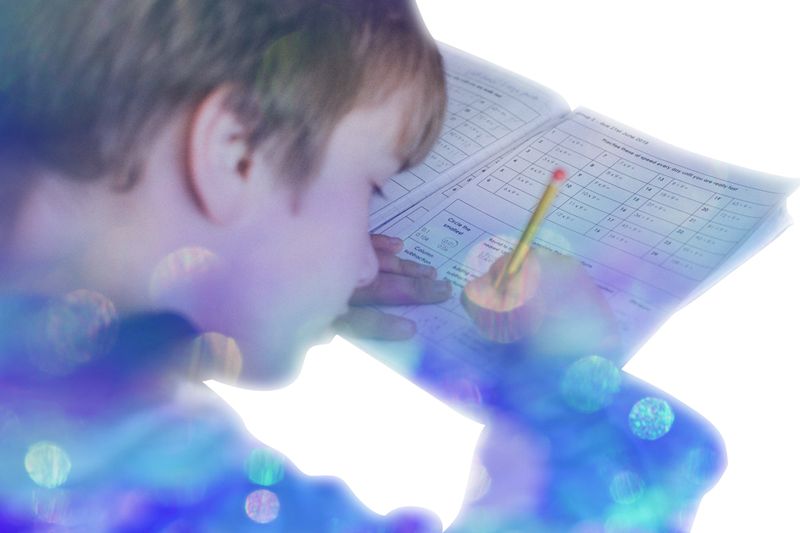Probably Problematic
Life's most important questions are, for the most part, nothing but probability problems.
— Pierre-Simon Laplace (1749-1827)

Mathematical Metaphysics
Probably Problematic
Life's most important questions are, for the most part, nothing but probability problems.
— Pierre-Simon Laplace (1749-1827)
The titled responsion refers to that slippery slope of numerical reasoning that can make even the most rational of us go bananas. It's like trying to catch a greased pig in a thunderstorm—impossible and utterly ridiculous.
As Plato once said, "wisdom begins in wonder," so let's wonder for a moment—why is probability such a problem child of reasoning? Is it because it's too mathy for our brains to handle? Or perhaps because it's too abstract, like trying to imagine a unicorn riding a bicycle? Maybe it's because the probability is just plain mischievous, like a leprechaun playing a prank on a mathematician. Either way, let's dive into the world of probability and see if we can make some sense of this topsy-turvy world of chance and luck. But be warned; we may come out loony, like Alice in Wonderland, after a bad batch of mushrooms. So hold on to your thinking caps, and let's take a wild ride through the ups and downs of probabilistic reasoning! ...
Now, we all know that probability can simultaneously be fascinating and frustrating. On one hand, it can help us make informed decisions, like bringing an umbrella on a cloudy day or investing in the stock market. On the other hand, it can lead us astray, like when we think we've got a winning lottery ticket and end up with nothing but a useless piece of paper. So what gives? Why does probability seem to elude our grasp like a slippery fish swimming upstream?
One problem with probabilistic reasoning is that it often requires making assumptions about the future based on past events. But as we all know, the future is notoriously unpredictable. Just because it's rained for the past three days doesn't mean it will rain today. And just because a stock has performed well in the past doesn't mean it will continue to do so. As Plato once said, "Everything that deceives may be said to enchant." And probabilistic reasoning can certainly enchant us with its tantalizing promise of predicting the future, only to deceive us with its inherent unpredictability.
Another problem with probabilistic reasoning is that our emotions and biases can influence it. We may overestimate the probability of something happening because we really want it to happen (like winning the lottery) or underestimate the probability because we're afraid of it happening (like getting a serious illness). As Plato wisely observed, "Opinion is the medium between knowledge and ignorance." And our opinions, shaped by our emotions and biases, can lead us down the slippery slope of probabilistic reasoning.
So, my friends, as we delve deeper into the world of probability, let us keep in mind the wise words of Plato and remember that wisdom begins in wonder. Let us wonder at the mysteries of probability but also approach it with a healthy dose of skepticism and humility. Who knows, we may catch that greased pig after all!
Mathematical Metaphysics
The propositions of mathematics are devoid of all factual content; they convey no information whatever on empirical subject matter.
— Carl Gustav Hempel (1905-1997)
The titled responsion is purely mathematical in nature.
Whoever doubts mathematics as being metaphysical is completely flat-footed as a materialist. No place to go, no place to turn, except to use that imagination stationed between the ears bobbling around on your head. Epiphenomenal? Yes. A projection of sorts? You betcha! So what. What's your point?
Ah, my dear skeptic, while it is true that mathematical propositions may not directly convey information on the empirical subject matter, they still hold a wealth of knowledge and understanding about the world around us.
Consider, for example, the famous Pythagorean theorem. While it may seem like a purely abstract mathematical proposition, it has profound implications for the physical world. It tells us that in any right-angled triangle, the square of the length of the hypotenuse is equal to the sum of the squares of the lengths of the other two sides. This knowledge has been used in fields ranging from architecture to astronomy, helping us understand and navigate the world around us.
And what about the intricate equations of physics, which have allowed us to explore the mysteries of the universe and make incredible discoveries about the nature of reality? These equations may not directly convey information about the empirical subject matter, but they allow us to make predictions and model complex systems with astonishing accuracy.
So, while dismissing mathematical propositions as devoid of factual content may be tempting, let us not underestimate the power and value of abstract reasoning and logical deduction. As the great mathematician and philosopher Bertrand Russell once said, "Mathematics, rightly viewed, possesses not only truth but supreme beauty."
The Multiplication of Misinformation
There's many a bestseller that could have been prevented by a good teacher.
— Flannery O'Connor (1925-1964)
The titled responsion is a mouthful of m's that results in what we would call Kitsch in Germany.
My dear fellow citizens of the world, imagine for a moment a world where the highest-paid profession is being a teacher. A world where teachers are revered and respected for their tireless efforts to shape the minds of our future generations. A world where teachers are given the resources they need to provide the best education possible for every student.
But alas, we do not live in such a world. In our world, teachers are often overworked, underpaid, and undervalued. And yet, they continue to dedicate themselves to their students, day in and day out, often going above and beyond the call of duty to ensure their students succeed.
So I ask you, my fellow citizens, to join me in a call to action for better teachers. Let us demand that our governments prioritize education and invest in our teachers. Let us support our teachers by giving them the resources they need to succeed, whether through better pay, smaller class sizes, or more professional development opportunities.
But it's not just up to the government. We can all do our part to support our teachers. We can volunteer our time and resources to our local schools, mentor aspiring teachers, or thank a teacher who has made a difference in our lives.
So let us work together to create a world where being a teacher is the highest-paid profession and the most respected and valued. A world where every child has access to the best education possible and every teacher has the resources they need to provide it. A world where our future generations can thrive, thanks to the tireless efforts of our dedicated teachers.

The planksip writer's cooperative is sponsoring a re-writing of this article (1,500 words) with $1,500 CAD in prize money for the best article as voted by your peers in the planksip writer's cooperative. Judged by your peers, your chance to join a community of creative thinkers and win over $750,000 CAD in prize money is your entry point into becoming a planksip journalist.
We want to change the way people engage. The planksip organic platform supports your writer and thought leader's voice. Join today. Membership matters!



